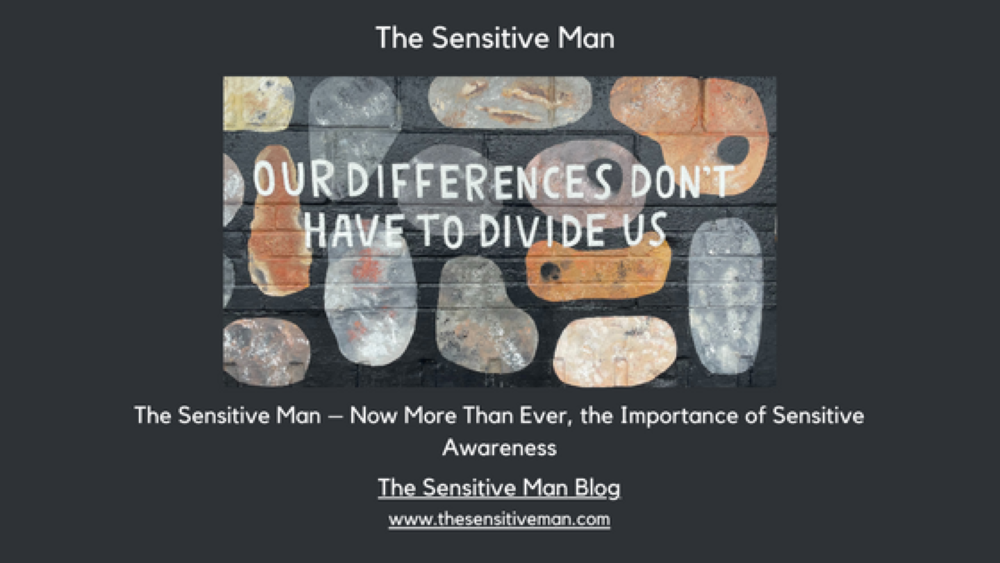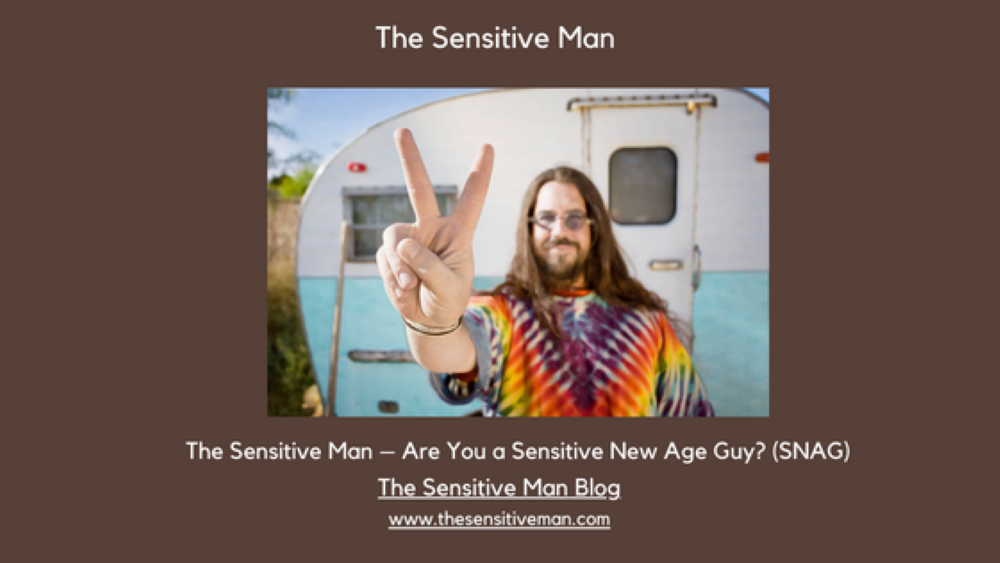|
A Blog about Sensory Processing Sensitivity from the Worldview of a High-Sensing Male
The "woke" movement, also known as the social justice movement, has been a hotly debated topic in recent years. While it aims to promote awareness and advocacy for social justice issues such as racism, sexism, and other forms of discrimination, critics argue that it restricts freedom of speech and expression and can be divisive and polarizing. However, in today's polarized world, being sensitively aware is crucial in fostering understanding and empathy. Unfortunately, the world is in short supply of this vitally human function. Highly sensitive people have an advantage due to their innate ability to pick up on subtle emotional cues. This article will explore sensitivity awareness and how cultivating it can build better relationships and a more compassionate society. Understanding Sensitivity Awareness Sensitivity awareness is the ability to be in tune with one's emotions and those of others. Highly sensitive people tend to be more empathetic and have a higher emotional IQ than most individuals. Signs of sensitivity awareness include reading body language, tone of voice, and subtle behavioral changes. Therefore, many people lacking this skill should consider raising the bar on their sensitivity awareness to help bridge gaps in understanding with others. HSPs can help educate and model these behaviors. Developing Sensitivity Awareness Learning to be mindful of oneself and others is key to developing this awareness. For example, paying attention to differences in people, such as neurodiversity, cultural differences, and equality issues, can enhance sensitivity to those differences. Likewise, listening and focusing on the needs of others can also help develop sensitive attention. Being aware of the choice of language and nonverbal cues can improve communication. In addition, better relationships and interactions can be fostered by elevating your sensitivity awareness. Developing a sensitive understanding of others can also result in better emotional regulation and reactions to others' differences. Internal and External Awareness Compiling information from within and without or being in tune with one's own emotions and the emotions of others is a critical aspect of this heightened awareness, along with understanding the feelings and thoughts of others and the importance of empathy. In addition, awareness of subtle environmental changes can help and requires paying attention to create necessary environmental awareness. How to Cultivate Sensitivity Awareness Cultivating empathy involves putting oneself in another's shoes and understanding their perspective. Mindfulness, or being present in the moment, can also help develop this comprehension. Active listening, or giving full attention to the speaker, is another crucial aspect, as is reserving judgment or commentary until the person listened to has been fully heard. Challenges to Sensitivity Awareness However, there are challenges to raising sensitive awareness. Societal barriers, such as systemic discrimination or inequalities, can hinder the development of empathy and kindness. In addition, personal obstacles, such as a lack of self-awareness, can be challenging. A lack of self-awareness means that an individual is generally unaware of their impacts and influences on others. Overcoming these barriers requires a willingness to learn and grow and a dedication to becoming more sensitively aware. This is an action-oriented endeavor, even for highly sensitive people. Awareness without action is ineffective. Examples of Sensitivity Awareness In personal relationships, sensitivity awareness can manifest as listening and empathizing with a partner during a difficult time. In professional settings, sensitivity awareness can mean being aware of cultural differences in the workplace and adapting communication styles accordingly. Finally, in society, sensitivity awareness can result in being aware of systemic inequalities and taking action to address them. This is a clarion call for highly sensitive people and those that would listen. In conclusion, sensitivity awareness is critical to fostering understanding and empathy in a polarized world. Individuals can develop sensitivity awareness by practicing mindfulness, compassion, and active listening. In addition, we can build better relationships and a more compassionate society by cultivating this type of understanding. It's time to embrace and model sensitivity awareness to bridge the knowledge gap and create a more harmonious, peaceful, and empathetic world.
0 Comments
A Blog about Sensory Processing Sensitivity from the Worldview of a High-Sensing Male Are you a Sensitive New Age Guy? This was a term that was bandied about a lot when I was a young adult. But, it was a brief flirtation with men's liberation promptly crushed by the Reagan revolution of the 80s. That return to conservative and traditional masculinity still has a hold on us today. The idea that men could be both sensitive and spiritual in an alternative way was just too much for some folks to handle- too soft, too weak, too feminine. But what exactly was the term about? The term "sensitive new age guy" (SNAG) is a colloquial expression often used to describe a man who has progressive views, is emotionally intelligent and empathetic, and is interested in spirituality and personal growth. This stereotype is associated with the New Age movement. It encompasses a range of beliefs and values that challenge traditional gender roles and emphasize emotional intelligence, non-violent communication, and spiritual development. While some people view the "sensitive new age guy" as being too emotionally fragile or insincere, others see sensitivity as a strength and value it in their relationships and communities. This shift in attitudes toward sensitivity and emotional intelligence is part of a broader cultural trend toward rejecting traditional masculinity and embracing a more nuanced and inclusive definition of masculinity. Overall, the "sensitive new age guy" is significant as a representation of changing cultural attitudes towards masculinity and gender roles and reflects the growing interest in spirituality, self-improvement, and emotional intelligence. Whether viewed positively or negatively, the "sensitive new age guy" is an important cultural phenomenon that provides insights into the evolving definition of what it means to be a man in the 21st century. The Origins of the Term The term "sensitive new age guy" can be traced back to the emergence of the New Age movement in the 1970s and 1980s. The New Age movement was a cultural and spiritual movement that embraced various alternative beliefs and practices, including spiritualism, alternative medicine, and environmentalism. As this movement grew, so did the stereotype of the "sensitive new age guy." The term "sensitive new age guy" was popularized to describe men who embraced New Age beliefs and values and were seen as being in touch with their emotions and espousing progressive views. In addition, this stereotype was often associated with men who were interested in spirituality, personal growth, and self-improvement and rejected traditional notions of machismo and aggression. In the decades since the phrase was first popularized, the "sensitive new age guy" has become a cultural phenomenon reflecting changing attitudes towards masculinity and gender roles. The stereotype has been celebrated and criticized, with some people viewing sensitivity as a strength and others seeing it as a sign of emotional fragility or insincerity. However, with the discovery of the temperament trait of sensory processing sensitivity in the mid-90s, sensitivity has gained traction as a normal and positive personality trait regardless of gender. Nevertheless, the "sensitive new age guy" continues to be an important cultural stereotype that provides insights into evolving attitudes towards masculinity and gender roles. Characteristics of a Sensitive New Age Guy The term "sensitive new age guy" (SNAG) is often used to describe a man who has the following characteristics:
The Sensitive New Age Guy (SNAG) stereotype has faced criticism for the following reasons:
Personal Reflections and Conclusions So, are you a SNAG? With the advent of what can only be described as a reborn, fledgling movement promoting men's ability to be sensitive, feeling, empathetic, and nurturing creatures again, can we revive the ideals of the SNAG movement of the 70s and early 80s? As highly sensitive men, can we be the champions of a revival and liberation of sorts to bring humanity back to masculinity? For those who have followed my blog over the years, you must realize that I believe this is our ideal purpose. We, as HSP men, can lead directionally and, by example, a rediscovery and recrafting of masculinity that matches the needs of our times. We are the blueprint and can serve as the model for men to rediscover their authentic selves and partner with females to create a liberation movement that will free both men and women to be in the fullness of the range of the human palette of behaviors, emotions, and capacities. We can lose the old nomenclature but retain the essence of change. The day is arising to create a new masculinity that is not abusive, violent, aggressive, or territorial—instead, replacing these long archaic traits with kindness, empathy, nurturing, and intuition. Characteristics long associated exclusively with the feminine can now be embraced to enhance and edify the masculine. The New Age moniker seems quaint now, but the day of sensitivity and self-awareness is here. |
AuthorBill Allen currently lives in Bend, Oregon. He is a certified hypnotist and brain training coach at BrainPilots.com. He believes that male sensitivity is not so rare, but it can be confounding for most males living in a culture of masculine insensitivity which teaches boys and men to disconnect from their feelings and emotions. His intent is to use this blog to chronicle his personal journey and share with others. Archives
July 2024
Categories
All
|



 RSS Feed
RSS Feed
